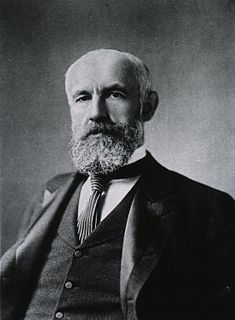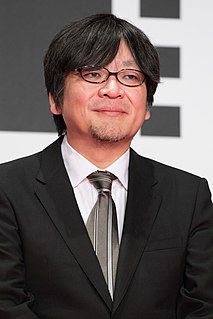A Quote by John Stuart Mill
We often hear the teachers of all creeds lamenting the difficulty of keeping up in the minds of believers a lively apprehension of the truth which they nominally recognize, so that it may penetrate the feelings, and acquire a real mastery over the conduct.... When it has come to be a hereditary creed, and to be received passively, not actively ... there is a progressive tendency to forget all of the belief except the formularies ... until it almost ceases to connect itself at all with the inner life of the human being.
Quote Topics
Acquire
Actively
Almost
Apprehension
Being
Belief
Believers
Ceases
Come
Conduct
Connect
Creed
Creeds
Difficulty
Except
Feelings
Forget
Hear
Hereditary
Human
Human Being
Inner
Inner Life
Itself
Keeping
Life
Lively
Mastery
May
Minds
Often
Over
Penetrate
Progressive
Real
Received
Recognize
Teachers
Tendency
Truth
Until
Up
Which
Related Quotes
Daily contact with some teachers is itself all-sided ethical education for the child without a spoken precept. Here, too, the real advantage of male over female teachers,especially for boys, is seen in their superior physical strength,which often, if highly estimated, gives real dignity and commands real respect, and especially in the unquestionably greater uniformity of their moods and their discipline.
If you have a belief and you come against an experience which the belief says is not possible, or, the experience is such that you have to drop the belief, what are you going to choose — the belief or the experience? The tendency of the mind is to choose the belief, to forget about the experience. That’s how you have been missing many opportunities when God has knocked at your door.
We have hitherto considered only two possibilities: that the received opinion may be false, and some other opinion, consequently, true; or that, the received opinion being true, a conflict with the opposite error is essential to a clear apprehension and deep feeling of its truth. But there is a commoner case than either of these; when the conflicting doctrines, instead of being one true and the other false, share the truth between them.
What is life? Thoughts and feelings arise, with or without our will, and we employ words to express them. We are born, and our birth is unremembered and our infancy remembered but in fragments. We live on, and in living we lose the apprehension of life. How vain is it to think that words can penetrate the mystery of our being. Rightly used they may make evident our ignorance of ourselves, and this is much.
A belief, however necessary it may be for the preservation of a species, has nothing to do with truth. The falseness of a judgment is not for us necessarily an objection to a judgment. The question is to what extent it is life-promoting, life-preserving, species preserving, perhaps even species cultivating. To recognize untruth as a condition of life--that certainly means resisting accustomed value feelings in a dangerous way; and a philosophy that risks this would by that token alone place itself beyond good and evil.
The Gospel of Life is not for believers alone: it is for everyone. The issue of life and its defense and promotion is not a concern of the Christian alone. Although faith provides special light and strength, this question arises in every human conscience which seeks the truth and which cares about the future of humanity. Life certainly has a sacred and religious value, but in no way is that value a concern only of believers. The value at stake is one which every human being can grasp by the light of reason; thus it necessarily concerns everyone.
As the river enters the sea and loses itself in the sea, so Krishnamurti has entered into that Life which is represented by some as The Christ, by others as The Buddha, by others still, as the Lord Maitreya. Hence Krishnamurti as an entity fully developed has entered into the Sea of Life and is the Teacher, because the moment you enter into that Life -which is the fulfilment of all Teachers, which is life of all the Teachers - the individual as such ceases.
Art schools are partly the villain here. (Never mind that I teach in them.) This generation of artists is the first to have been so widely credentialed, and its young members so fetishize the work beloved by their teachers that their work ceases to talk about anything else. Instead of enlarging our view of being human, it contains safe rehashing of received ideas about received ideas. This is a melancholy romance with artistic ruins, homesickness for a bygone era. This yearning may be earnest, but it stunts their work, and by turn the broader culture.
It is an absolutely vain endeavor to attempt to reconstruct or even comprehend the nature of a human being by simply knowing the forces which have acted upon him. However deeply we should like to penetrate, however close we seem to be drawing to truth, one unknown quantity eludes us: man's primordial energy, his original self, that personality which was given him with the gift of life itself. On it rests man's true freedom; it alone determines his real character.
The Latin words humus, soil/earth, and homo, human being, have a common derivation, from which we also get our word 'humble.' This is the Genesis origin of who we are: dust - dust that the Lord God used to make us a human being. If we cultivate a lively sense of our origin and nurture a sense of continuity with it, who knows, we may also acquire humility.
There is, however, in art another kind of external similarity which is founded on a fundamental truth. When there is a similarity of inner tendency in the whole moral and spiritual atmosphere, a similarity of ideals, at first closely pursued but later lost to sight, a similarity in the inner feeling of any one period to that of another, the logical result will be a revival of the external forms which served to express those inner feelings in an earlier age.
How so many absurd rules of conduct, as well as so many absurd religious beliefs, have originated, we do not know; nor how it is that they have become, in all quarters of the world, so deeply impressed on the minds of men; but it is worthy of remark that a belief constantly inculcated during the early years of life, while the brain is impressionable, appears to acquire almost the nature of an instinct; and the very essence of an instinct is that it is followed independently of reason.






































